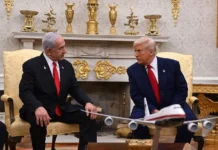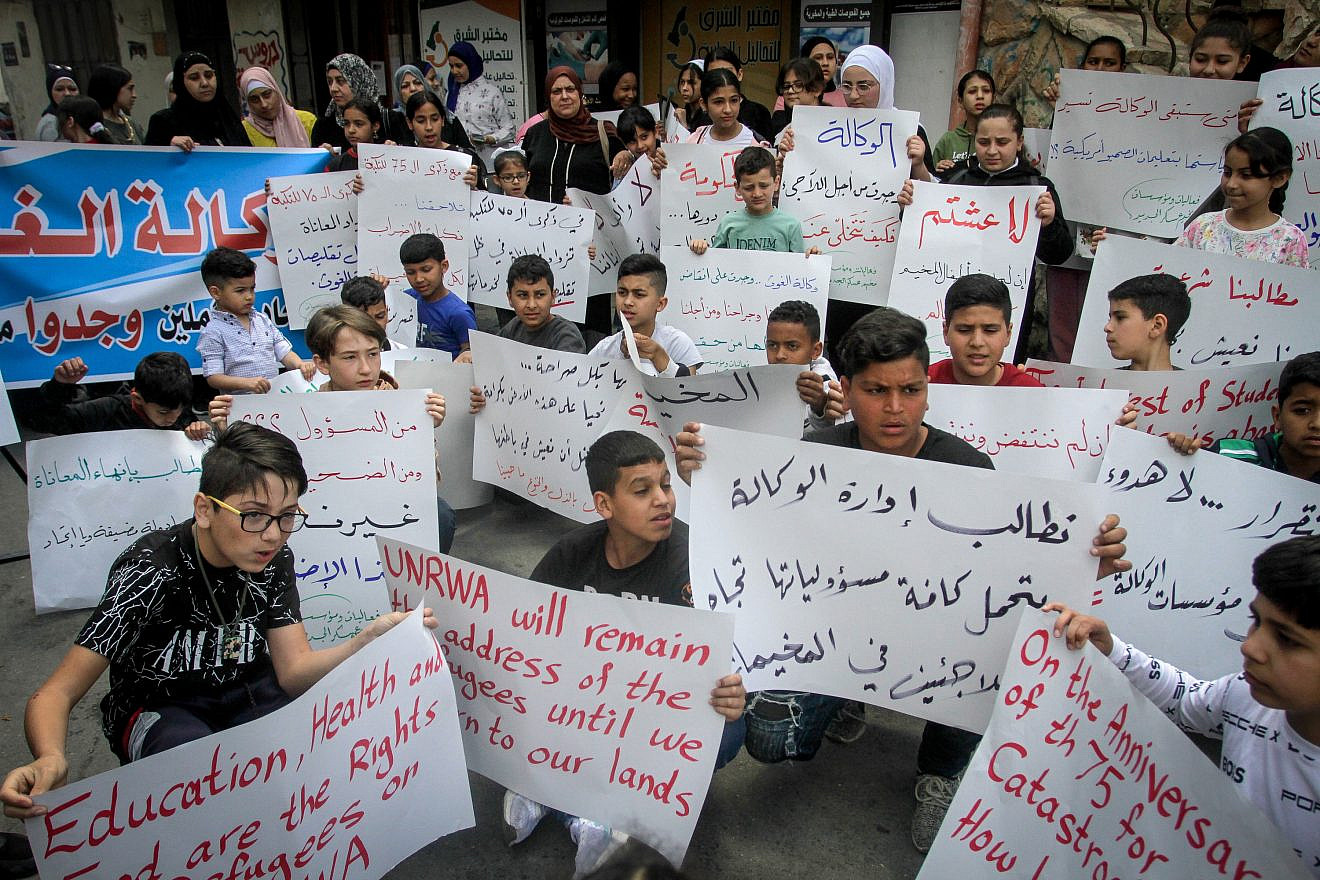Israeli Diaspora Minister Amichai Chikli is an angry man. Chikli, who has a history of being outspoken, has lately turned his sights on the German government. He has complained about inappropriate comparisons between the Holocaust and the Palestinian nakba—Arabic for “catastrophe.” Worse still, the German government has been sponsoring the dissemination of such comparisons.
Chikli’s complaint concerns a government-funded event in Potsdam at which German journalist Charlotte Wiedermann made the comparison in question. Wiedermann has denied doing so, but whether the allegation is true or false, the comparison has become increasingly common. It is now trendy to equate the industrialized murder of six million Jews to the displacement of Palestinian Arabs during Israel’s 1948 War of Independence.
This war was launched by seven Arab countries and resulted in the expulsion of every last Jew in eastern Jerusalem and Judea and Samaria. Arab League members then declared a second war against their own Jewish citizens, whom they branded “the Jewish minority of Palestine.” This resulted in the near-total destruction of ancient Jewish communities throughout the Middle East and North Africa. Ninety-nine percent of the regions’ Jews were forced to flee.
What angered Chikli the most was that the Potsdam event was officially sponsored by public institutions. Moreover, it was not the only event of its kind. It was part of a series of such events held in Berlin in recent months. These events included lectures with titles such as “Understanding the Pain of Others: The Holocaust and the Nakba,” “Hijacking the Memory of the Holocaust for the Benefit of Dehumanization in Palestine,” and “Zionism Can Also Motivate Antisemitism.”
This year, coinciding with Israel’s 75th anniversary, campaigners for the Palestinian cause have succeeded in moving the nakba from the margins to the mainstream. For the first time, the U.N. held a “Nakba Day” commemoration at its New York headquarters. Palestinian Authority chief Mahmoud Abbas, sporting a symbolic key affixed to his lapel, demanded permission to return to his native Safed, which is inside Israel proper.
Over 75 years, the meaning of the term nakba has evolved. It was popularized by the Syrian Christian journalist and historian Constantine Zureik. To him, the “catastrophe” in question was the Arab defeat in the 1948 war—that is, the Arab failure to destroy Israel.
Zureik wrote, “Seven Arab countries declare war on Zionism in Palestine. … Seven countries go to war to abolish the partition and to defeat Zionism, and quickly leave the battle after losing much of the land of Palestine—and even the part that was given to the Arabs in the Partition Plan.”
He concluded, “We must admit our mistakes … and recognize the extent of our responsibility for the disaster that is our lot.”
Since then, introspection and self-criticism have been in short supply among Israel’s enemies. History has been rewritten to imply that Israel pursued a deliberate policy of ethnic cleansing against the Palestinian Arabs, even though 160,000 Arabs still remained in the Jewish state.
Through this distortion of history, the nakba narrative attempts to create a Palestinian “catastrophe” that, as Abbas said last year, is equivalent to 50 Holocausts. Mimicking laws against Holocaust denial, Abbas even declared “nakba denial” a criminal offence.
In short, the nakba narrative appropriates Jewish history to transform the Palestinian refugees into the new Jews. It follows that their Jewish oppressors are the new Nazis.
The only way to correct the injustice of the nakba, the Palestinians claim, is to implement the “right of return,” not just for the refugees but their descendants as well. This “right” is also appropriated; in this case from Israel’s Law of Return. When he announced the first “Nakba Day” in 1998, Yasser Arafat hijacked Zionist language, calling for his people to be allowed to “return” from their “diaspora” to their land.
Since the definition of a Palestinian refugee has been expanded to include four generations of their descendants, over five million people now claim a “right of return” to Israel proper. If implemented, this would effectively transform Israel into the 23rd Arab state.
During the row over the Potsdam event, Chikli rightly pointed out that the wartime Palestinian leadership under Haj Amin al-Husseini enthusiastically collaborated with the Nazis. But even though he is the son of Jewish refugees from Tunisia, Chikli did not make the only valid nakba comparison: Between the Palestinian nakba and the Jewish nakba.
The latter was the expulsion of 870,000 Mizrahi Jews from Arab and Muslim countries. The two nakbas took place around the same time and in roughly similar numbers. In effect, it was a population exchange.
For most Mizrahi Jews, who with their descendants constitute more than half of Israeli Jews today, Israel was the only nation that would accept them. The Mizrahi Jews do not have the ability, legal right or desire to return to the countries that ejected them.
Unless Israel makes a forceful, proactive effort to set out the real facts, the distorted nakba narrative will continue to turn hearts and minds against Israel in Germany and elsewhere.
























